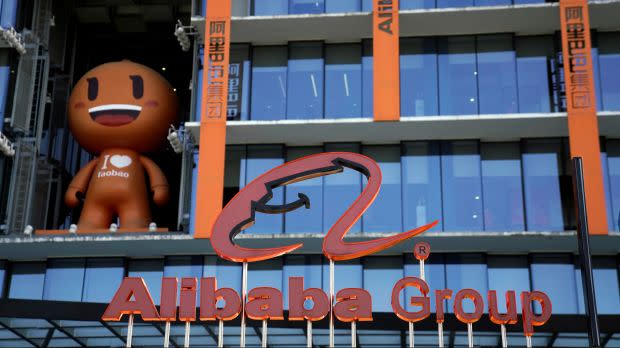Beijing just fired another anti-trust warning shot at China’s tech giants

Last month, Chinese tech giants saw nearly $290 billion wiped off their market value, after China’s top market regulator released draft rules intended to prevent internet monopolies. Now Chinese anti-trust regulators have sent another warning likely to deepen investor fears about the new approach Beijing is taking to its tech giants.
The country’s top markets regulator, the State Administration of Market Regulation (SAMR), said in a statement (link in Chinese) today (Dec. 14) that it has fined three tech companies 500,000 yuan ($76,000) each for their failure to report past deals for anti-trust reviews under a 2008 anti-trust law.
Alibaba Investment, a major investment arm under the namesake e-commerce giant, was fined for not seeking approval from the regulator before the firm became the controlling shareholder of Intime Retail, a Chinese shopping mall operator, in 2017. China Literature, an e-book unit under Tencent, was fined for not submitting the company’s acquisition of TV producer New Classics Media in 2018 for review, and package pick-up station operator Hive Box also was fined for not reporting its purchase of rival China Post Smart Logistics this year. The companies didn’t immediately reply to requests for comment.
The regulator also said today it’s reviewing a merger between two live game-streaming sites that would create a market-dominating player.
It’s unclear when the investigations were opened or why the fines into the older deals were only issued now. In response to a query on that score, the regulator said it is following up on numerous tips on industry concentration being introduced in violation of the law. The regulator also noted that the fines were not large but said it hoped to send “send a signal to society that the supervision of internet monopolies will be enhanced, dispelling the wait-and-see mentality that some companies may have.”
The penalties are the latest indication of Beijing’s growing wariness of its tech champions’ increasing sway, in some cases dominating entire sectors, even though in many cases its own policies have helped foster their rise.
Perhaps the biggest warning shot was when last month Beijing suspended the $37 billion dual IPO of fintech giant Ant Group, part of Alibaba, after first pulling in founder Jack Ma and top executives for a grilling. Shortly after that episode, China revealed a draft law (link in Chinese) designed to prevent monopolistic behavior by internet platforms, such as subsidizing service prices below cost to grab markets share from rival, or forming alliances with other companies to weed out smaller competitors. The draft law sent shockwaves across the tech sector and led to a short, yet frantic selloff in companies like Alibaba. The law has completed its public comment period and is currently under revision, according to SAMR.
China has also been moving quickly on allowing citizens to try out the digital yuan, billed as a virtual counterpart to the official currency, and which allows the government to enter a space currently dominated by private wallets: Alipay, the digital wallet owned by Ant, and Tencent’s WeChat Pay.
It’s clear more scrutiny of tech firms is on the way—and perhaps fintech in particular—with some reporting that a full-fledged anti-trust inquiry could be opened into the mobile digital wallets.
Beijing is not alone in signaling a strong desire to curb the concentration of power among a few tech monopolies. In the US, after a 16-month inquiry, a House Judiciary Committee report issued in October criticized Amazon, Google, Facebook, and Apple for their alleged anti-competitive practices. Weeks after, US federal and state authorities including the Department of Justice filed antitrust lawsuits targeting Facebook and Google’s alleged abuse of power in areas such as social media and advertising. In Europe, regulators are expected to soon announce proposals that seek to put new restraints on “gatekeeper” platforms—tech giants like Google whose services are widely used—to prevent the companies from squeezing out their smaller rivals.
Sign up for the Quartz Daily Brief, our free daily newsletter with the world’s most important and interesting news.
More stories from Quartz:
Google showed us the danger of letting corporations lead AI research
These three countries are in the lead to be Africa’s e-hub after the free trade agreement
